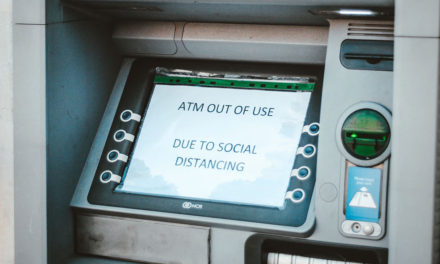Are your social media exchanges ethical? Or when you write, post, tweet, retweet, like, shame, slam, and disparage at will, are you ethical? “Ethics, by definition, is the concept of what is good, bad, right, and wrong. In social media, the right ethic equals the right perspective and the right thinking on how to leverage social media appropriately and how to engage people in the right manner. Etiquette is a code of behavior within the context of our society.”[1]
At the risk of understatement, America’s vast number of social media addicts are not known for etiquette much less sincerity. “The three main principles of social media ethics and etiquette are Authenticity—people will respond positively if you are sincere. Transparency—having hidden agendas will only count against you. Communication—getting to know people as people and letting them get to know you.[2]
Media, writ large, is rife with ethical challenges. “Issues of moral principles and values apply to the conduct, roles, and content of the mass media, in particular journalism ethics and standards and marketing ethics. . . In relation to news coverage, it includes issues such as impartiality, objectivity, balance, bias, privacy, and the public interest. More generally, it also includes stereotyping, taste and decency, obscenity, freedom of speech, advertising practices such as product placement, and legal issues such as defamation. On an institutional level, it includes debates over media ownership and control, commercialization, accountability, the relation of the media to the political system, issues arising from regulation (e.g., censorship) and deregulation.”[3]
Because social media is a “thing” for most people, a “must” for young people, and a “fund-raising, hoot” for everyone in politics, in need, or in doubt.
Cambridge University Press has studied it to death—not literally, but figuratively. Its May 2017 report posed a tantalizing question: “How Social Are Social Media.”
The use of social media is rapidly increasing, and one of the major discussions of the 21st century revolves around how the use of these applications will impact the social relationships of users. To contribute to this discussion, we present a brief narrative review highlighting the advantages and disadvantages of social media use on three key aspects of social connectedness: social capital, sense of community, and loneliness. The results indicate that using social media can increase social capital, lead to the formation of friendships and communities, and reduce loneliness. However, some social media site users may experience weakening friendships, online ostracism, and heightened loneliness. Therefore, we argue that the use of social media has contradictory effects on social connectedness. Moreover, the direction of these outcomes is contingent upon who is using the site and how they are using it. Based on these arguments, possible directions for future research are discussed. It is recommended that discourse be continued relating to the association between online social behavior and connectedness, as this will enable researchers to establish whether the positive outcomes of social media use outweigh the negative.[4]
Cambridge University is one of the most revered and respected universities in the world. Here in America, few have made any connection between social media and “connectedness.” But the shoe may fit. Connectedness is a feeling of belonging to or having affinity with a particular person or group. The Oxford Dictionary says it’s about partnering and trust. So, social media aficionados want partners they can trust. But is that realistic? How many Americans trust what they read on social media? In October 2020, the Pew Research Center researched America’s complicated feelings about social media in an era of privacy concerns.
They reported, “64% of Americans say social media have a mostly negative effect on the way things are going in the U.S. today. Just one-in-ten Americans say social media sites have a mostly positive effect on the way things are going, and one quarter say these platforms have neither positive nor negative effects. The majority of Americans say social media negatively affect the way things are going in the country today. Those who have a negative view of the impact of social media mention, in particular, misinformation and the hate and harassment they see on social media. They also have concerns about users believing everything they see or read – or not being sure about what to believe. Additionally, they bemoan social media’s role in fomenting partisanship and polarization, the creation of echo chambers, and the perception that these platforms oppose President Donald Trump and conservatives.”[5]
Pew Research.org also reported, “Roughly half of Democrats and independents who lean toward the Democratic Party (53%) say social media have a largely negative effect on the way things are going in the country today, compared with 78% of Republicans and leaners who say the same. . . Among Democrats, there are no differences in these views along ideological lines. Republicans, however, are slightly more divided by ideology. Conservative Republicans are more likely than moderate to liberal Republicans to say social media have a mostly negative effect (83% vs. 70%). Conversely, moderate to liberal Republicans are more likely than their conservative counterparts to say social media have a mostly positive (8% vs. 4%) or neutral impact (21% vs. 13%).”[6]
Young people rely on social media but don’t trust it. Gallup.com says, “Although young people rely on social media and online sites to keep them informed about current events, of all the institutions they are asked about, young people are the least likely to trust social media platforms a lot to provide them with accurate information.”[7] That may be good news for writers who focus on the YA genre. But it says little about the dominance of social media by young people, who cannot seem to exist with one or more devices in hand, eye, and ear.
Another way for writers to assess the ethics of social media is to think about whether there is any “socialness” in social media. Sciencedirect.com explored that in context. “Despite the popularity and pervasive role of social media in our everyday lives, we have little academic understanding of how “social” social media actually is. Social media can refer to many things but are largely functional environments which foster user-generated content creation and sharing. . . previous work suggests that social media use is often not considered as social interaction at all. . . Mostly, research in cyberpsychology has studied “social media use” in rather generic terms and generally not studied in detail the intricacies of what behaviors this consists of or how this may be platform-specific. . . On one hand, some research highlights that social media use has detrimental impacts on aspects of mental well-being . . . other studies suggest that social media use may bring out many psychosocial benefits.”[8]
Some researchers and writers are recognizing the multiple ethical dilemmas of social media. One specific challenge is the reality that very few social media tweets or posts are edited. Consequently, “Tempo, trolling, and tricky role confusions leave social media officers with digital dilemmas. . . Exchanges happen quickly to a wide audience, and tempo increases the risk of mistakes. There are five categories of ethical dilemmas. (1) Role Dilemmas address how the person in social media can have multiple roles, creating confusion about ethical responsibilities. Such dilemmas occur when it is unclear whether a person is professionally active on a social media platform, or as a friend, client, or competitor. (2) Tempo Dilemmas occur because the exchanges in social media happen quickly, with an increased risk of making mistakes. (3) Integrity Dilemmas are concerned with how easy or difficult it is to remain committed to personal values and moral standards when representing one’s organization online and being tempted or pressured to act against these. (4) Speech Dilemmas arise in connection with decisions about what it is acceptable to express when being active on a social media platform. (5) Competence Dilemmas occur when social media experts can exploit competence gaps in their own favor, with little risk of detection. Such dilemmas occur due to the gaps in how well people understand the workings of social media.[9]
Arguably, the biggest ethical dilemma in writing about social media is the privacy paradox. “Privacy issues can have far-reaching professional, personal, and security implications. Ultimate privacy in the social media domain is very difficult because these media are designed for sharing information. Participating in social media requires people to ignore some personal, privacy constraints resulting in some vulnerability. The weak individual privacy safeguards in this space have resulted in unethical and undesirable behaviors resulting in privacy and security breaches, especially for the most vulnerable group of users.”[10]
Betwixt and between ethical dilemmas, ethics remains not just unanswerable, but decidedly unethical. The question as long as two years ago became can social media ever be ethical? That’s not morally or socially, it’s a question of algorithms. We all hear about them, and some know they power screens and apps of every kind and dimension. “An entire market already exists for the packaging of multiple sources of ‘anonymized’ data pertaining to you, sold to the highest bidder for better marketing placements suitable to you, and better models to encourage your use of social media. A crucial question now arises, can users demand more ethical social media? One where users are not treated as resources between competing social media companies all fighting for your attention. Is it possible for the end user to dictate how they want social media to affect them? It wasn’t very long ago that scientists and computer programmers developed self-improving algorithms that led to the tremendous leaps in technology that make modeling and predicting your digital behavior possible. But the danger is real. Algorithms that show you what you want to see and get better at predicting what you want to consume eventually create echo chambers that don’t let in dissenting opinions. In many respects, the all-time high of ideological partisanship and political discord we see in our societies today is a direct product of social media. The divide only grows further when social media enables the belief that the other side is completely unrelatable, given the entirely separate social media spaces it allows you to occupy.”[11]
Given the prevailing ethical doubt about social media, the future of it is clear. It will grow like weeds in manure piles. As of 2023, Facebook, nee Meta had 2.96 billion MAUs. TikTok had 1 billion. Twitter had 556 million and Trump’s Truth Socia had 2 million. Parlar had 1.3 million with an average visit duration of 3.4 minutes.
What impact might social media sites and users have on the 2024 presidential election? That question has more to do with AI-powered social media than with old-fashioned pages on Facebook. Forbes Magazine thinks it might, and its essential use will be to spread misinformation. “One danger could be that social media could be used as a platform to ‘fool all of the people, all of the time,’ at least via the spread of misinformation. . . social media has become a prime pollutant in today’s political landscape, which is so littered with lies, deception, conspiracy theories, misinformation, and, even worse, disinformation – even as nearly three-quarters of Americans turn to it for a source of news. Worse still, shrinking attention spans have led to an increase in the number of Americans suffering from headline-itis, that mentally bereft affliction of glancing at the glitz and then moving on to the next shiny object.”[12]
Social as well as unsocial media is here to stay, but not to obey. It’s inherently untrustworthy. Ethicists agree that the right ethic equals the right perspective. Right thinking is another matter. There is no practical way to control social media to behave, much less post truthful, respectful content. Etiquette is quaint on social media. But narcissism is more fun and drives a large percentage of social media posts.
Writers should set an example by following the ethical imperatives of our profession. “Ethical writing is writing that clearly indicates where the source material has been incorporated into one’s own writing. Ethical writing is also writing that acknowledges a range of perspectives on an issue. Ethical writing is writing with a level of inclusion, respect, and acknowledgment of diversity. The importance of ethical writing, then, is based not only upon the avoidance of plagiarism but also on avoiding the weaknesses of bias and exclusive language, i.e., sexist, racist, homophobic, etc. This strengthens the credibility and persuasiveness of the writer’s argument.”
[1] https://www.compukol.com/social-media-ethics-and-etiquette
[2] Ibid.
[3] https://en.wikipedia.org/wiki/Media_ethics
[4] https://www.cambridge.org/core/journals/journal-of-relationships-research/article/how-social-are-social-media-a-review-of-online-social-behaviour-and-connectedness
[5] https://www.pewresearch.org/short-reads/2020/10/15/64-of-americans-say-social-media-have-a-mostly-negative-effect-on-the-way-things-are-going-in-the-u-s-today/
[6] Ibid.
[7] https://news.gallup.com/opinion/gallup/357446/young-people-rely-social-media-don-trust.aspx
[8] https://www.sciencedirect.com/science/article/pii/S2451958821000312
[9] https://www.bi.edu/research/business-review/articles/2020/07/ethical-dilemmas-of-social-media–and-how-to-navigate-them/
[10] https://www.intechopen.com/chapters/70973
[11] https://www.trtworld.com/perspectives/can-social-media-ever-be-ethical-43161
[12] https://www.forbes.com/sites/petersuciu/2023/05/19/ai-powered-social-media-could-play-significant-role-in-the-2024-election

I am an author and a part-time lawyer with a focus on ethics and professional discipline. I teach creative writing and ethics to law students at Arizona State University. Read my bio.
If you have an important story you want told, you can commission me to write it for you. Learn how.






 I am an author and a part-time lawyer with a focus on ethics and professional discipline. I teach creative writing and ethics to law students at Arizona State University.
I am an author and a part-time lawyer with a focus on ethics and professional discipline. I teach creative writing and ethics to law students at Arizona State University.  My latest novel is Hide & Be.
My latest novel is Hide & Be.  If you have an important story you want told, you can commission me to write it for you.
If you have an important story you want told, you can commission me to write it for you.